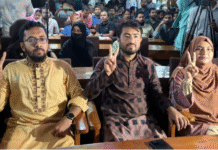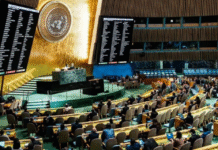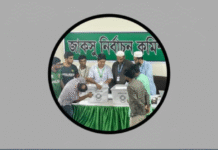46 killed in first 47 days this year, 208 last year
Despite massive criticisms, the incidents of extrajudicial killings in the name of “gunfights” or “crossfire” is on the rise with 46 people reportedly killed at the hands of law enforcers in the last one and a half months.
According to rights watchdog Ain O Salish Kendra, at least 46 people were killed in “gunfights” from January 1 to February 16. Of them, 15 were killed by RAB, 22 by police, one by RAB and police, one by BGB and 16 others by the joint forces.
Such killings first surfaced in 2004, after the formation of the elite crime fighting force RAB (Rapid Action Battalion). In 2005 and 2006, at least 739 people were killed in such incidents.
At that time, then opposition party Awami League criticised the BNP-Jamaat government and asserted that they would stop “crossfire” incidents by law enforcers if assumed power. But in 2009, at least 229 people were killed this way.
The incidents of crossfire or extrajudicial killings were on the decline after 2006 and it came down to 91 in 2012.
According to ASK, 210 people were killed in 2004; 377 in 2005; 362 in 2006; 180 in 2007; 175 in 2008; 133 in 2010; 100 in 2011.
However, last year, “crossfire” got a new name, “gunfight”, when around 208 people were killed.
Over the last 10 years, a good number of people were allegedly picked up by law enforcement agencies and were never found again.
Rights activists say the incidents of crossfire suddenly increased centring on the 10th national election held on January 5.
Prof Mizanur Rahman, chairman of the National Human Rights Commission, has said that the incidents have risen alarmingly in recent times. These go against the rule of law and democracy, and are in no way acceptable.
“Those responsible for such criminal acts must be given capital punishment to stop this practice,” he said.
However, police chief Hassan Mahmood Khandker claimed that forced disappearance and killings were nothing but an old criminal practice and that it continues to happen.
“The law enforcers are on alert about such practice and they have successfully solved such cases by arresting the criminals,” he said.
About the involvement of law enforcers in the extrajudicial killings in the name of gunfights, he said action would follow investigation if any allegations were proved based on evidence.
According to allegations, most crossfire incidents are nothing but a plot and are one-sided. The police versions of these incidents follow a standard pattern leading to questions about their veracity.
In most cases, individuals identifying themselves as police, RAB or DB officials pick up people. Students, politicians, businesspersons and opposition leaders are on the list of missing.
Sometimes their bodies are found and sometimes they disappear completely. The law enforcers issue press statements claiming that the deceased person had been a criminal, a proposition found to be false in certain cases.
The law enforcers also claim that they have to open fire in self-defence since the detainee’s cohorts launch armed attacks on them.
During an investigation, the Dhaka Tribune found that one person, who had no criminal record, was killed in a gunfight with law enforcers in Jatrabari on February 15.
Salauddin, 29, and Jewel, 28, were killed on the spot. Although Salauddin was accused in eight murder cases, Jewel had no charges against him. He was a businessman in Kaptanbazar area and used to sell filter instruments.
The Jatrabari police could not show any cases against Jewel, or even a general diary. Confirming the fact, Mohiuddin Ahmed, senior assistant commissioner of police (Demra division), told the Dhaka Tribune that although Jewel was not accused in any case, Salauddin mentioned his name while giving three separate confessional statements before a magistrate.
Asked about Jewel, Shanir Akhra resident Ashraful Haq said they had heard about Salauddin as a criminal but nothing about Jewel. “I do not know any criminal by this name.”
The Dhaka Tribune also contacted the investigation officer of the case, Prodip Kumar Kundu, who is a sub-inspector of Jatrabari police. He also failed to show any legal documents against Jewel.
In this regard, Elina Khan, chief executive of Bangladesh Human Rights Foundation, said: “Complaints are filed by families with local police stations after a person goes missing and most of these complaints are filed against the law enforcers. If they did not do anything, then why are the complaints filed against them repeatedly?”
She observed that political will and cooperation of the government was needed to stop these incidents of disappearance and killings.
On January 28, Tanvir Hassan Anjan, organising secretary of Bangladesh Chhatra League’s Bhatara unit, went missing. The members of police, Rab and DB failed to make any progress or trace him even though several complaints were lodged about the matter.
On December 4 last year, Asaduzzaman Rana, Mazaharul Islam and Al-Amin – former leaders of Jatiyatabadi Chhatra Dal’s Jagannath University unit – went missing from Baridhara in the capital.
Rana’s sister Minara Begum filed a general diary with Mugda police station soon after incident, but police are yet to find him.
The Dhaka Tribune found no complaint or case filed with Kotwali police station against the three.
Campus sources said they knew the three as Chhatra Dal leaders but had not heard about their involvement in violence or crimes in the area.
Source: Dhaka Tribune










